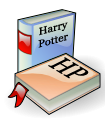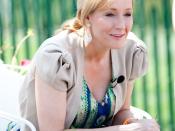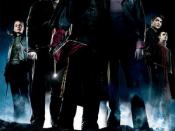"Magic has a universal appeal. I'd love it to be real." - J.K. Rowling
Do popular books that involve witchcraft and/or other forms of "evil" harm children? Or, does utilizing literature that peaks their interest and encourages them to read help the youth of today? With the new Harry Potter craze sweeping the globe, concerned parents, teachers and religious leaders ask the previous questions and ignite great debate. Thoughts, ideas and criticisms have been generated expounding on whether it is acceptable for a wizard to be a children book's hero or heroine. Selling over 130 million copies and printing in 42 languages (Waters, 2002), J.K. Rowling's Harry Potter Series reaches children of all ages and peaks the interest of many children that otherwise will not read. The series tells the tale of a young boy who, on his eleventh birthday, is told that he is a famous wizard. The novels discuss the trials and tribulations of not only a boy coming of age but also learning about his great new power while fighting of an evil lord (Voldemort, the antagonist) bent on destroying him.
This material has created social concerns sparked mainly by devout Christians as to whether or not it should have a place in children's literature. Amid preachers' sermons and book burning demonstrations, concerns brought forth by parents and teachers question the acceptability of using literary materials such as the Harry Potter series to enhance a child's literacy, especially within the classroom.
Opponents criticize J.K. Rowling of bringing the occult down on the innocent children of this generation, and some even accuse the author of practicing witchcraft herself (Religious Tolerance, 2003). Very few Evangelical Christian bookstores stock these books. Reverend George Bender of the Harvest Assembly of God Church in Butler County remarks that his church believes that...


